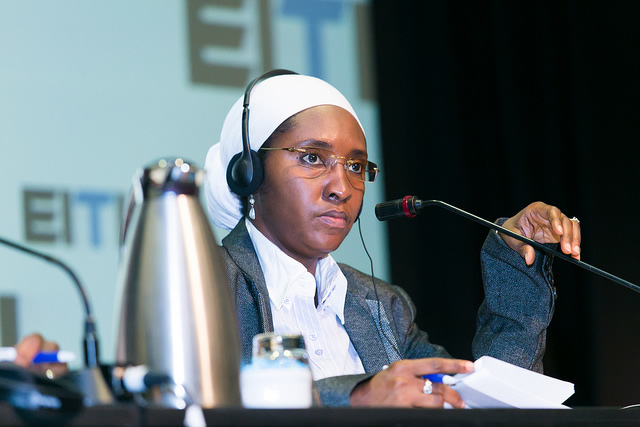- FG Releases 50% of Funds for Capital Expenditure
The Minister of State for Budget and National Planning, Zaynab Ahmed, on Wednesday said the Federal Government had so far released about 50 per cent of the capital expenditure component of this year’s budget.
She disclosed this while answering questions at a press briefing held at the end of a meeting of the Federal Executive Council presided over by President Muhammadu Buhari.
She was joined at the briefing by the Minister of Information and Culture, Alhaji Lai Mohammed; and Minister of Power, Works and Housing, Mr. Babatunde Fashola.
Ahmed said, “On the borrowing plan that Mr. President has sent to the National Assembly for 2016; indeed, included in the borrowing plan is the amount that is required for both local and foreign borrowing to fund the 2016 budget deficit.
“The budget implementation itself is on course. The 2016 budget is fully performed to date in terms of personnel; that is to say, we are not owing any salaries at the federal level. Operational expenditure has been disbursed for eight months and the ninth month is just being processed. Capital expenditure has been disbursed to the tune of nearly 50 per cent.”
“About N720bn has been released from the MDAs’ budget of N1.4tn as of the end of September.”
Ahmed said the preparation of the 2017 budget was at an advanced stage.
She explained that the Economic Management Team had reviewed it extensively, while the next step was for the document to be taken to the Federal Executive Council for approval, after which it would be sent to the National Assembly.
The minister said the council was also presented with a progress report on the implementation of the government’s social investment programme.
She said there was already an approval from the steering committee in the sum of N150bn, adding that N25bn had been released into the account, while another N40bn was in the process of being released into the account.
Ahmed added that the Homegrown School Feeding Programme arm of the scheme had commenced in Kaduna State, noting that the Federal Government would handle Primary 1-3, while the states would be responsible for Primary 4-6.
She explained, “There is no spending yet on the national social investment programme. We are just kicking off; some funds will be released to the Bank of Industry this week for the EIP programme and for the school feeding programme, it is only after the cooks have performed that they will get their first payment.
“For the job creation programme, it is when the graduates have resumed and have worked for the first month that money will be released to them.”
Fashola, on his part, said the council approved the completion of the 215 megawatts Kaduna power plant, which began in 2009.
He said the project, which was initially meant to be completed in 2012, would now be completed in 2017.
The second project approved by the council, according to Fashola, is the construction of a substation to evacuate 40MW of power from the first phase of the Gurara hydroelectric power plant to connect to Kaduna and to enable it to interconnect to the Mamdo transmission substation, thus strengthening the transmission grid.
The minister stated, “What these two approvals will do is to complete ongoing projects, which is a commitment of this administration, and create work because contractors will return to site, and increase our power by 215MW.
“From Kaduna, we will get 40MW extra into the grid from the Gurara phase one, and we are expanding the transmission (network) across the country.”

 Billionaire Watch3 weeks ago
Billionaire Watch3 weeks ago
 Startups4 weeks ago
Startups4 weeks ago
 News4 weeks ago
News4 weeks ago
 News4 weeks ago
News4 weeks ago
 Bitcoin4 weeks ago
Bitcoin4 weeks ago
 Naira4 weeks ago
Naira4 weeks ago
 Forex3 weeks ago
Forex3 weeks ago
 Treasury Bills4 weeks ago
Treasury Bills4 weeks ago

























